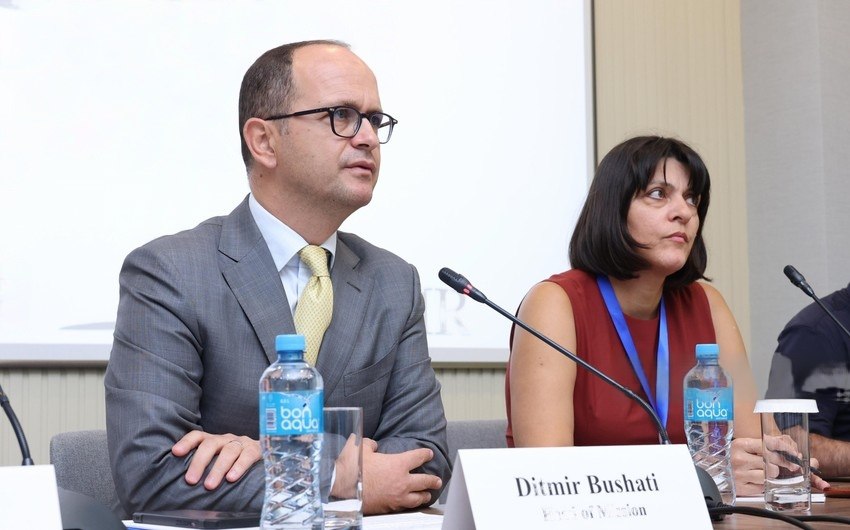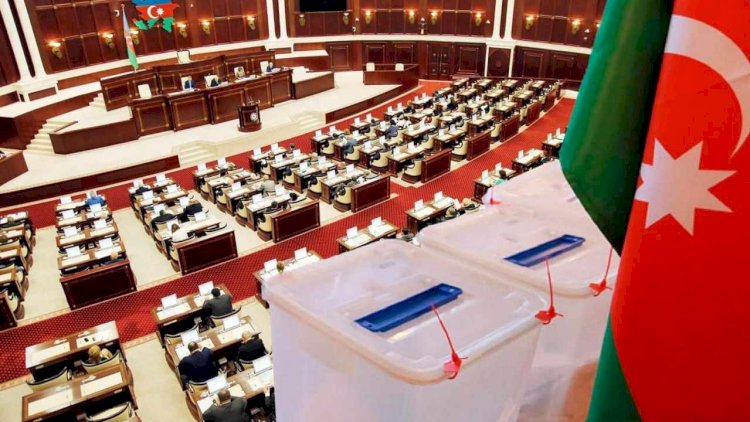OSCE Mission won't give interim assessment of Azerbaijan elections
OSCE/ODIHR observation mission
The OSCE Office for Democratic Institutions and Human Rights (ODIHR) observation mission for the snap elections in Azerbaijan’s Milli Majlis (Parliament) announced the start of its activities.
- Union activists on trial in Azerbaijan
- “Azerbaijan must build relations with Russia while constantly considering changes in the geopolitical landscape.” Opinion from Baku
- Will a peace agreement be signed with Armenia this year? Commentary from Baku
By order of Azerbaijani President Ilham Aliyev on June 28, 2024, snap parliamentary elections in the country are scheduled for September 1.
The Azerbaijani government has announced that it does not plan to invite the Parliamentary Assembly of the Council of Europe (PACE) to observe the elections. However, the OSCE/ODIHR observation mission has been invited to the snap parliamentary elections.

The mission includes 11 experts in elections, law, media, and other fields, as well as 28 long-term observers who will start their activities in Azerbaijan’s regions from August 8, according to the mission head, Albania’s Ditmir Bushati, at a press conference.
On the eve of the election day, an additional 280 short-term observers will arrive in Azerbaijan.
Additionally, a team led by a special coordinator and head of the OSCE short-term mission will be deployed for the elections.
The OSCE/ODIHR mission will monitor all aspects of the electoral campaign, including the work of electoral administrations at all levels, election legislation and its implementation, respect for fundamental freedoms, media coverage of the elections, and resolution of election-related disputes.
Observers will also assess the implementation of previous ODIHR recommendations.
The mission will hold meetings with representatives of government bodies, political parties, civil society, media, international organizations, and other stakeholders.
Bushati mentioned that he has already met with officials from the Ministry of Foreign Affairs and the Central Election Commission and hopes that “this cooperation will continue.”
The mission will assess the elections against OSCE commitments, other international obligations and standards for democratic elections, as well as national legislation.
An interim report will be published on September 2, with a final report planned for several months later.
Unlike previous elections, the ODIHR mission will not issue an interim report this time, meaning it will refrain from evaluating the campaign until after the elections are completed.
In response to journalists’ questions about the value of monitoring the elections in Azerbaijan if the government does not implement previous ODIHR recommendations, Bushati said that the mission is deployed at the invitation of the Azerbaijani government, and every OSCE country has an obligation to invite ODIHR observers.
“We do not interfere in the election process or support any party. We observe and assess the process itself,” Bushati noted.
Asked about how the lack of a PACE observation mission might affect election transparency, Bushati declined to comment, stating that he is authorized to speak only for the ODIHR observation mission.
The mission head highlighted that ODIHR is ready to cooperate as much as possible with other observation missions but will evaluate the elections based on its own principles, standards, and criteria.
Bushati also refrained from commenting on the “competitiveness of the elections,” repeating that a preliminary assessment, including on this aspect, will be provided on September 2.



















